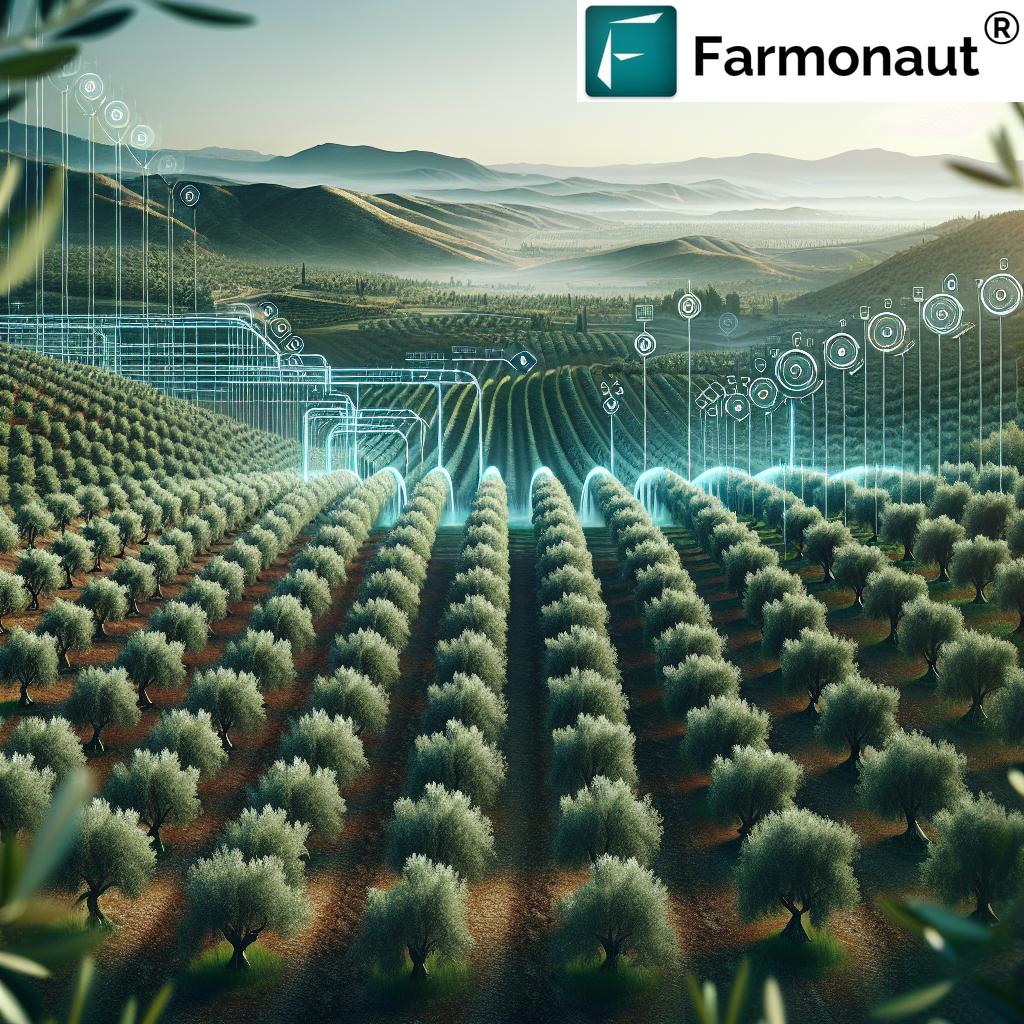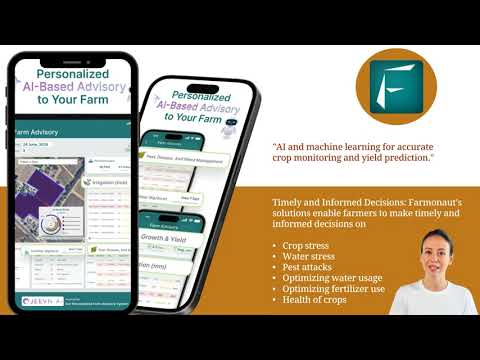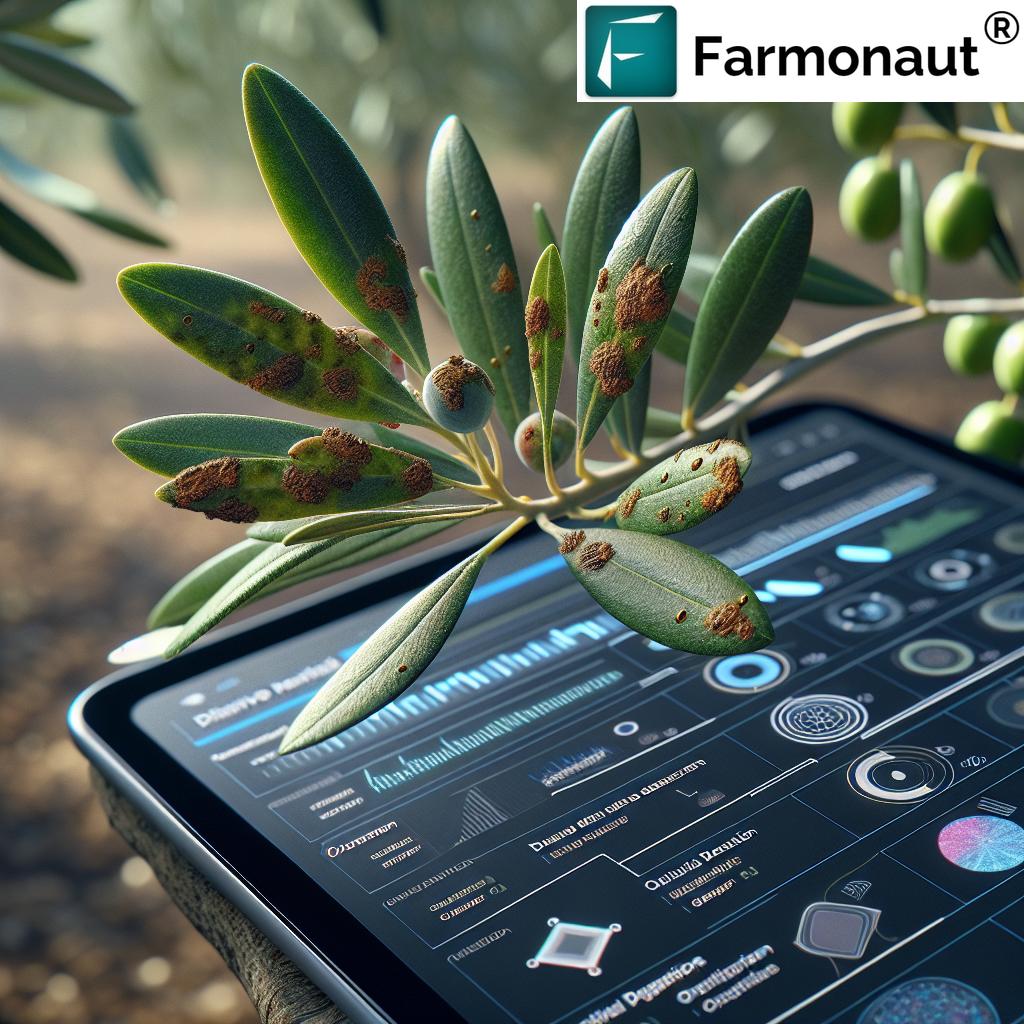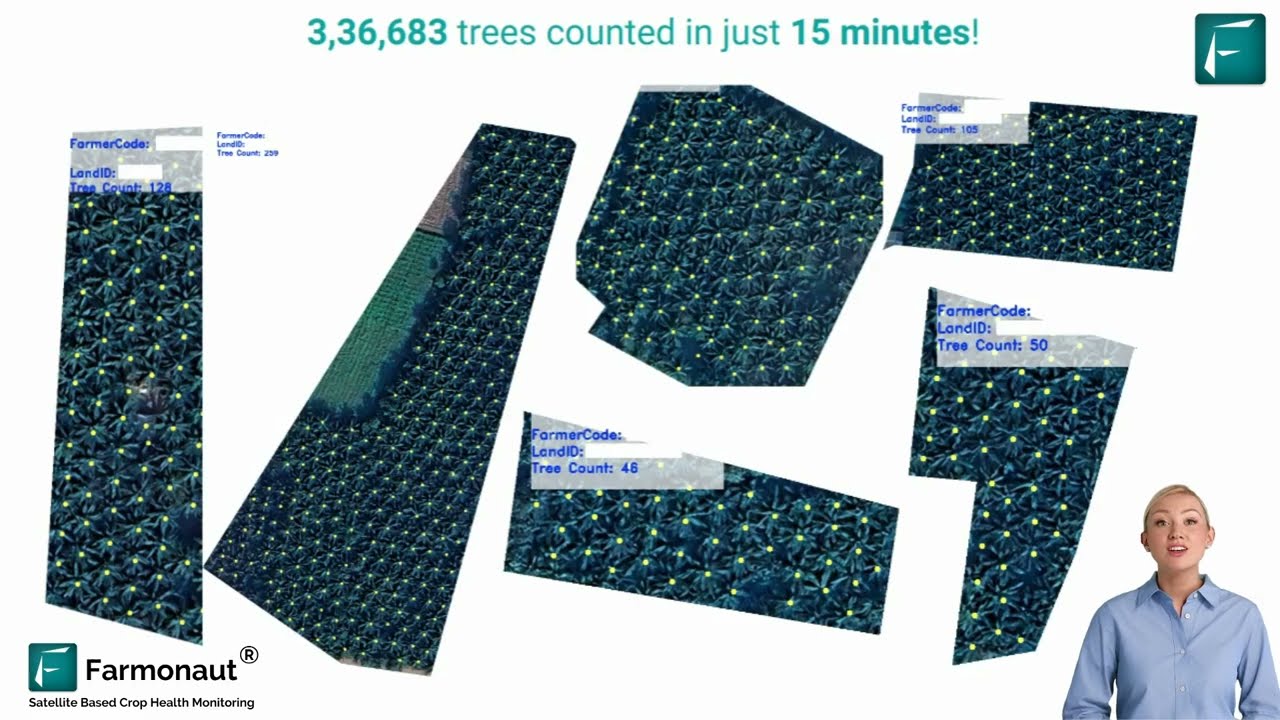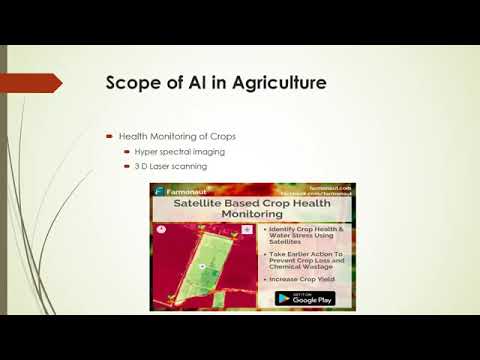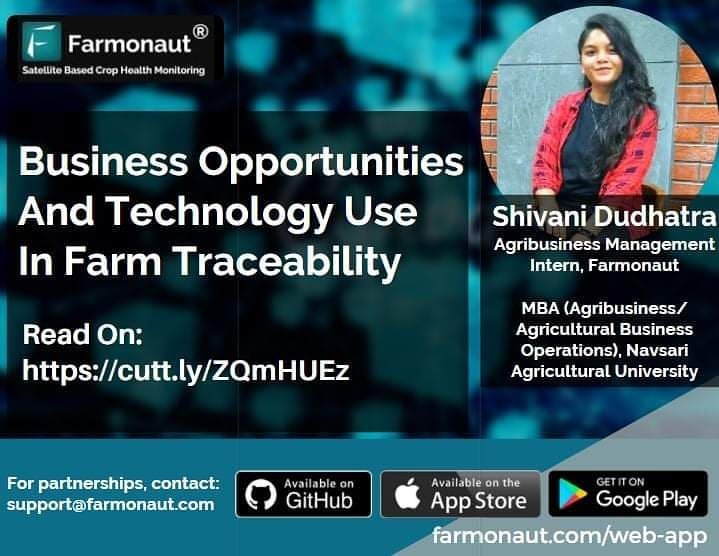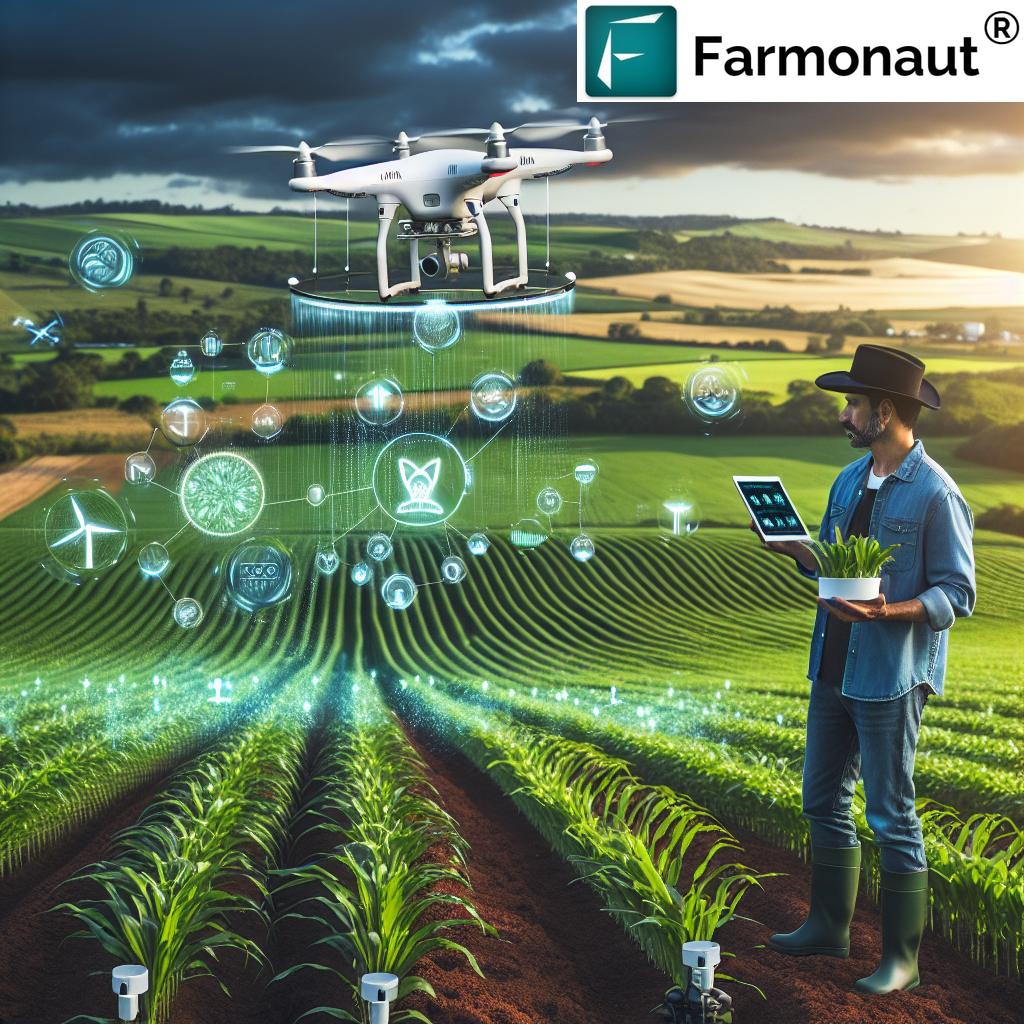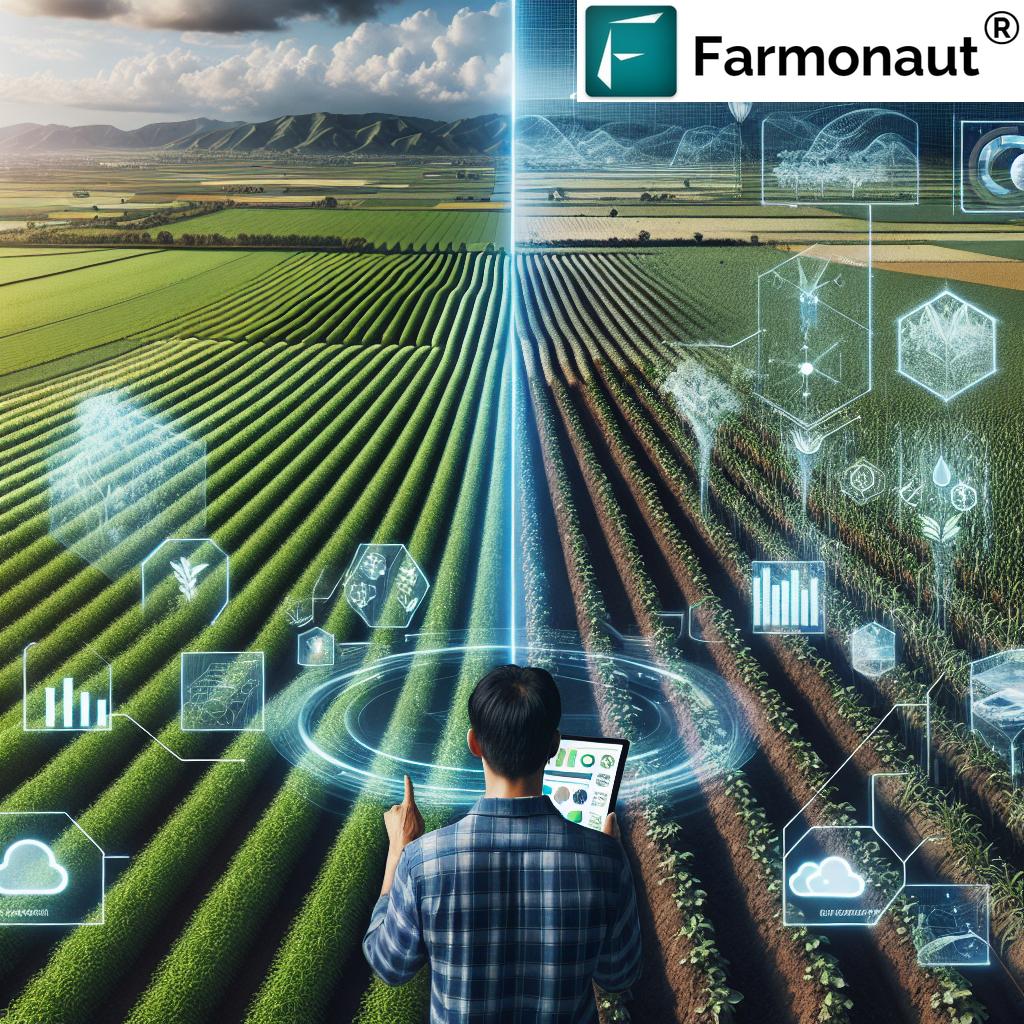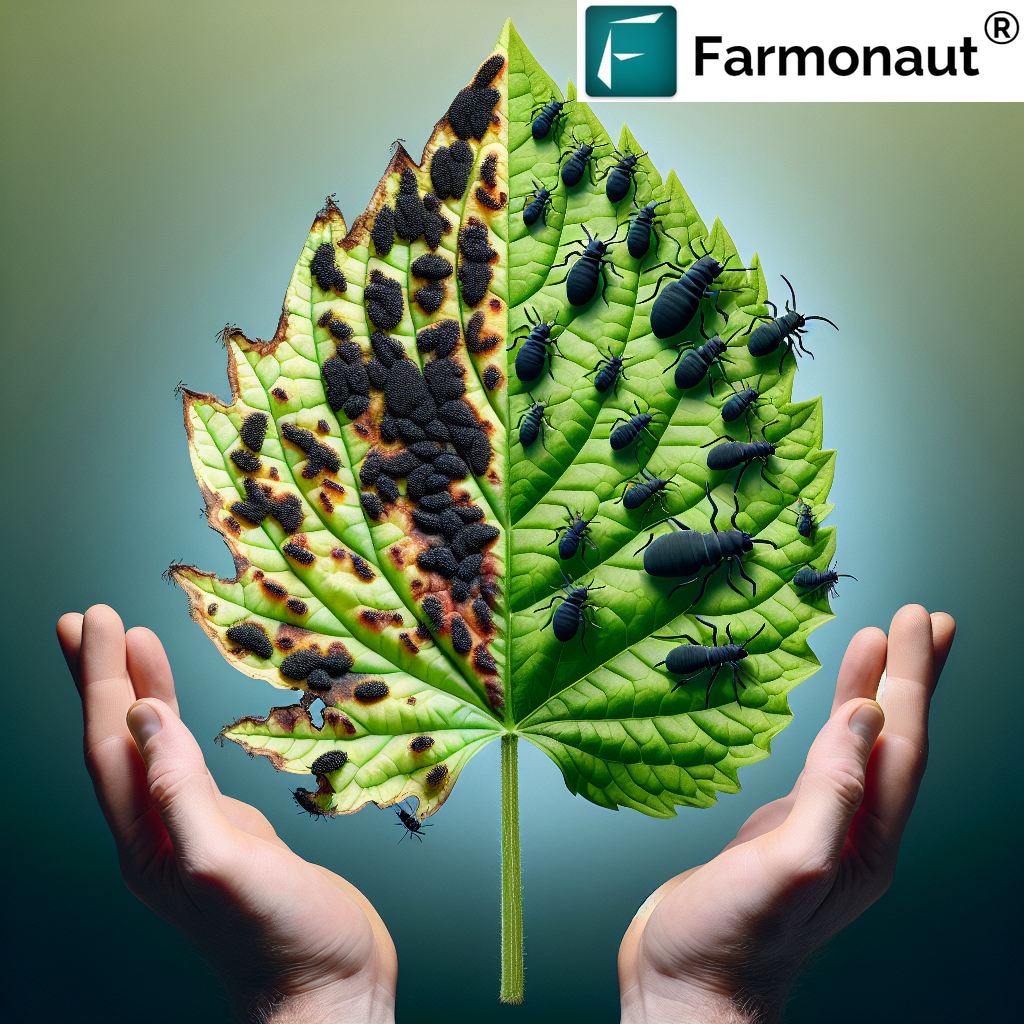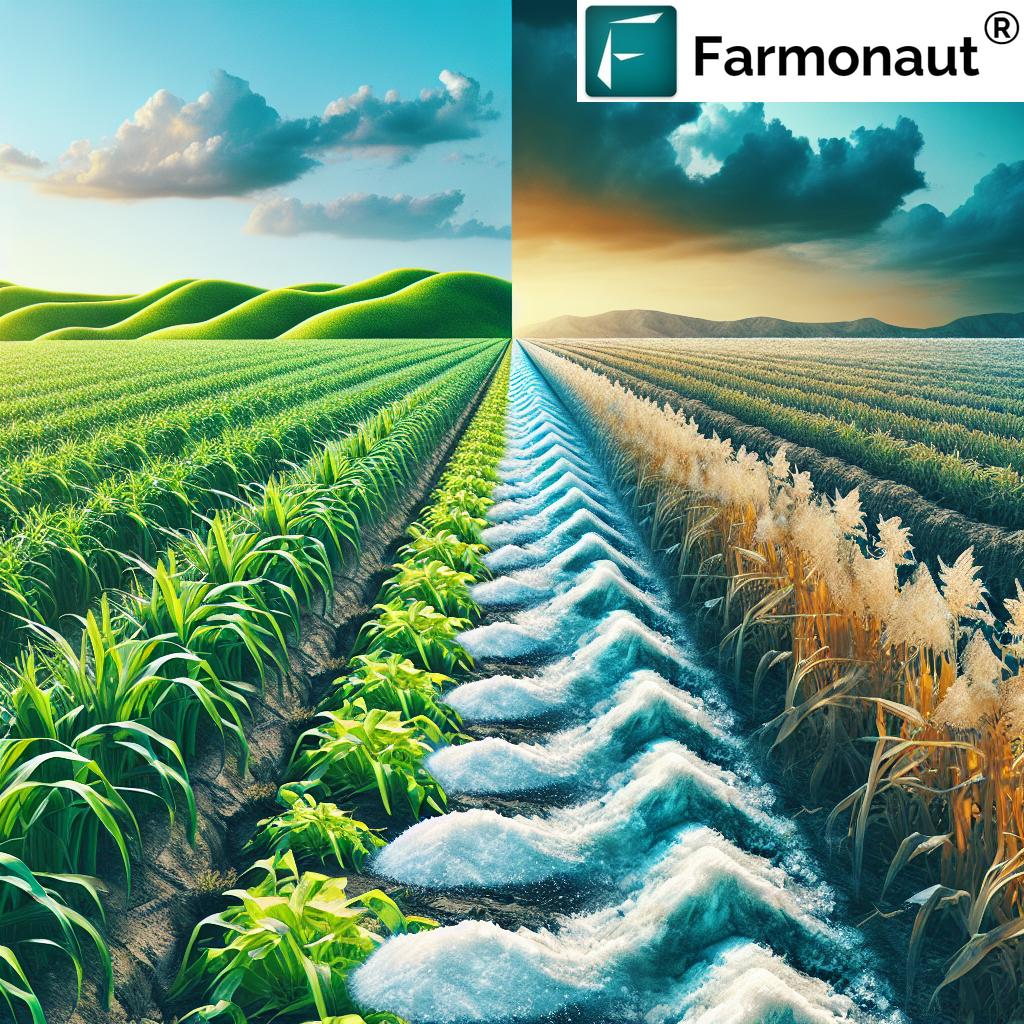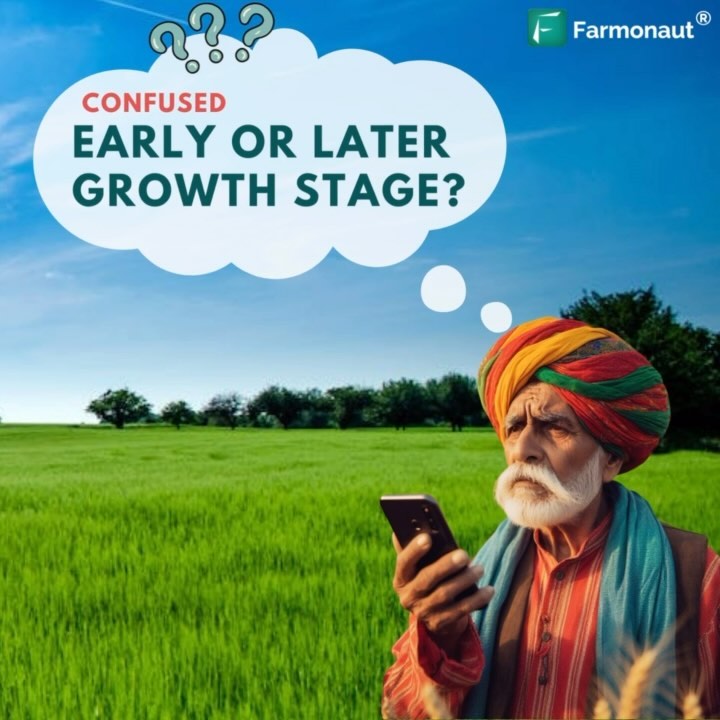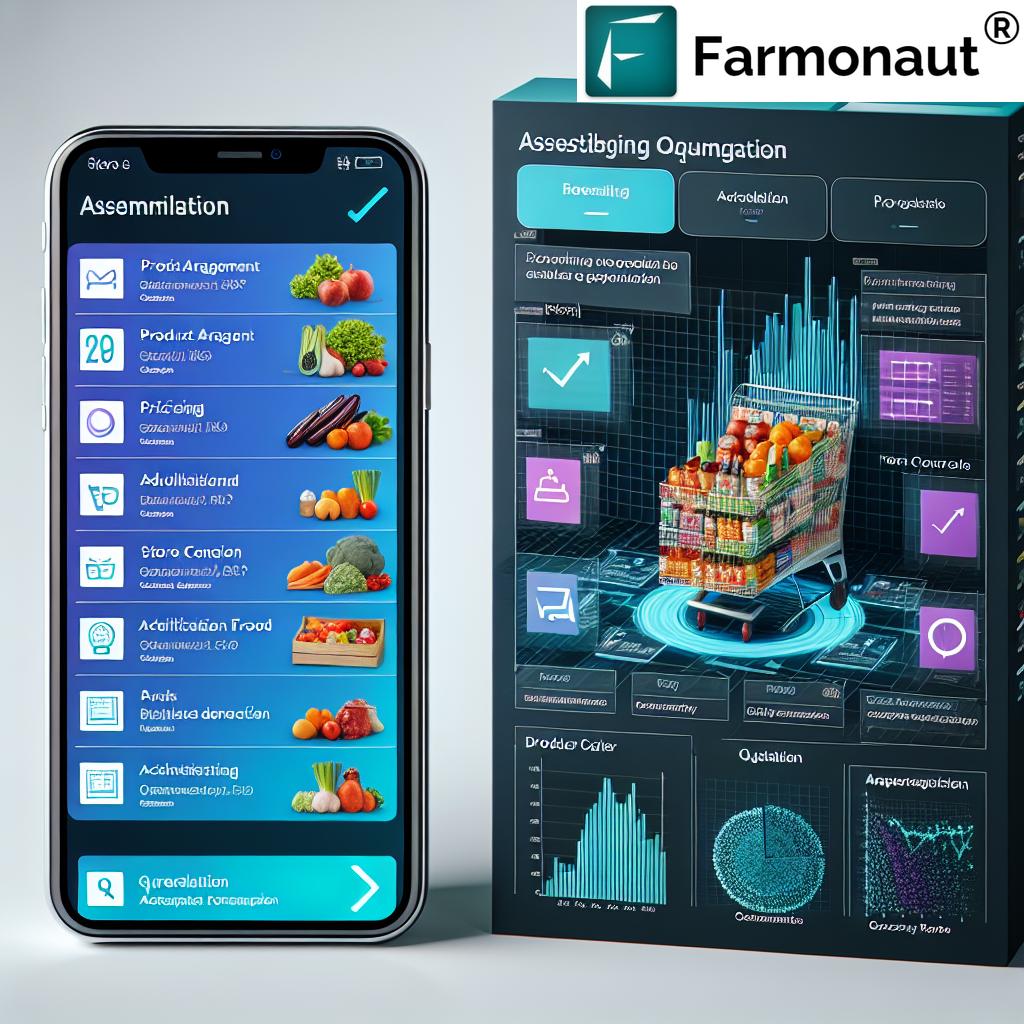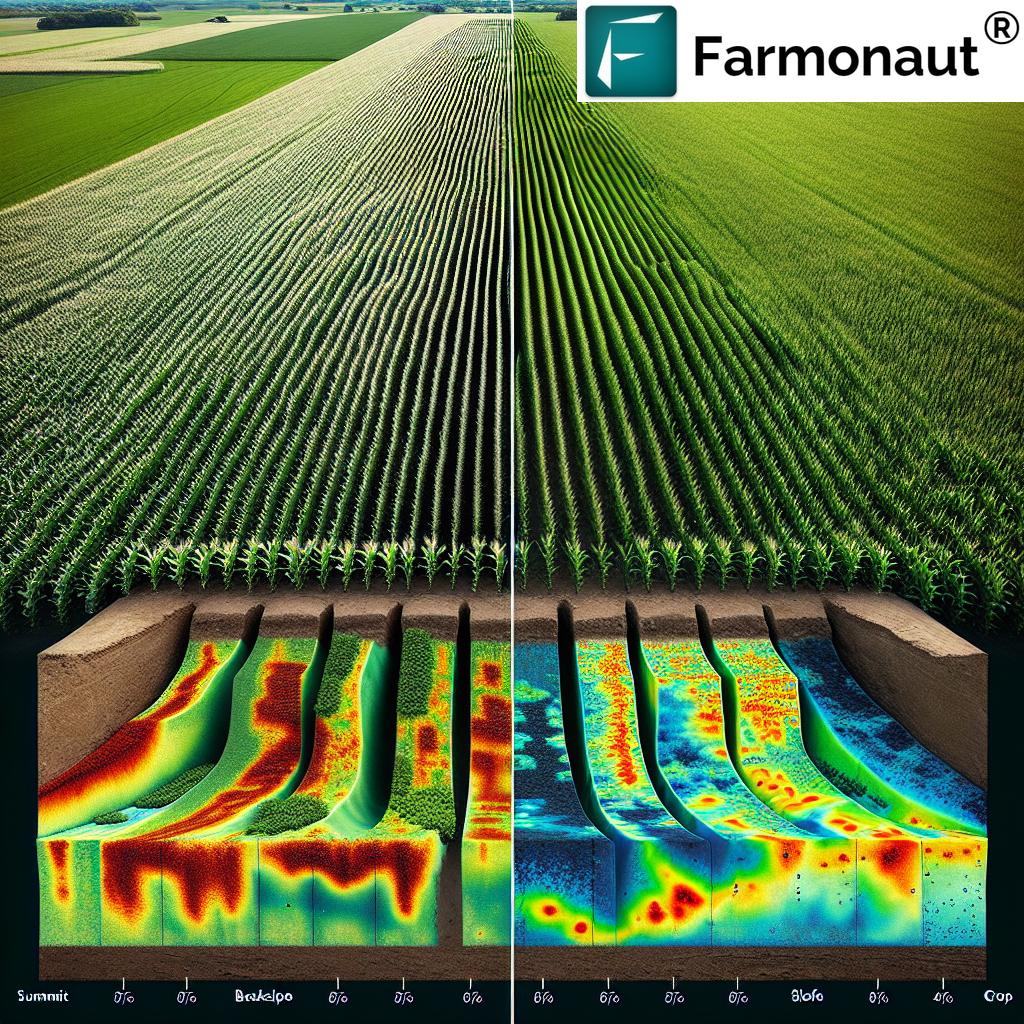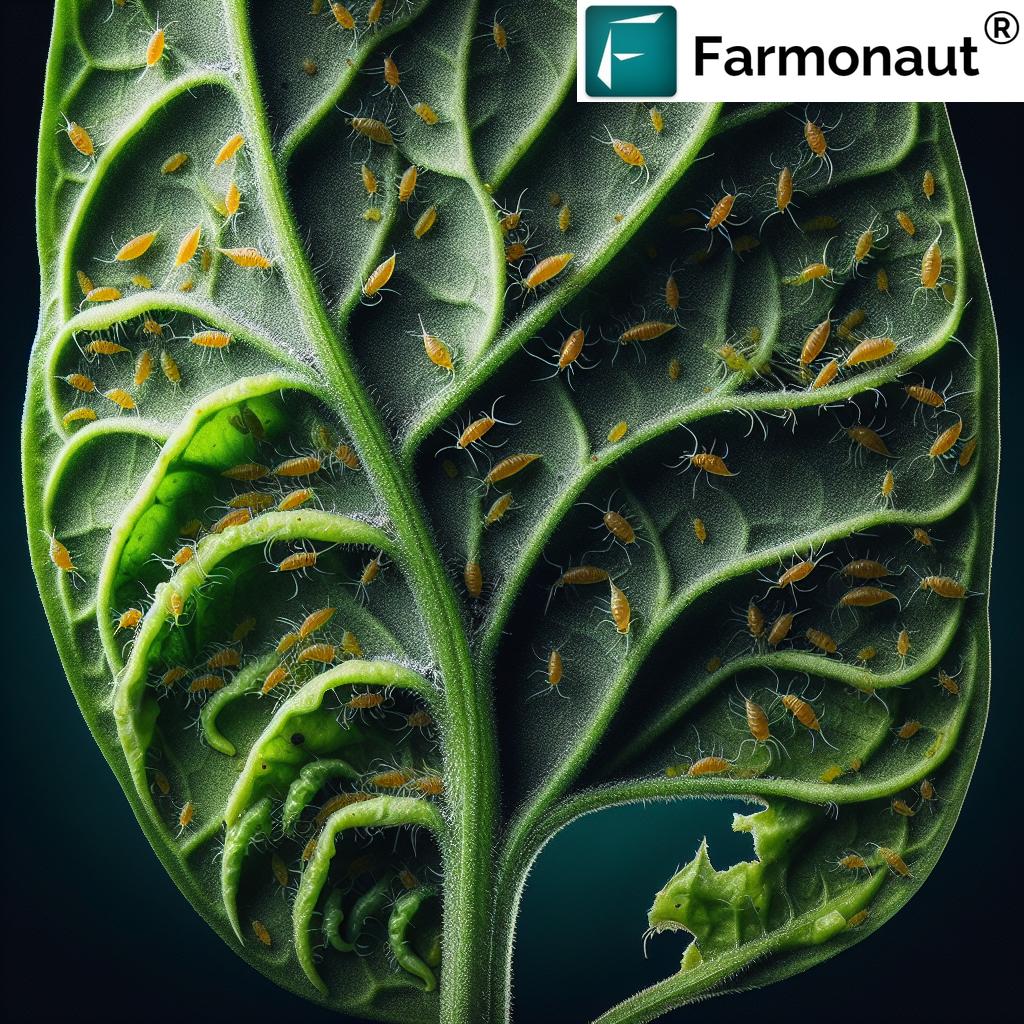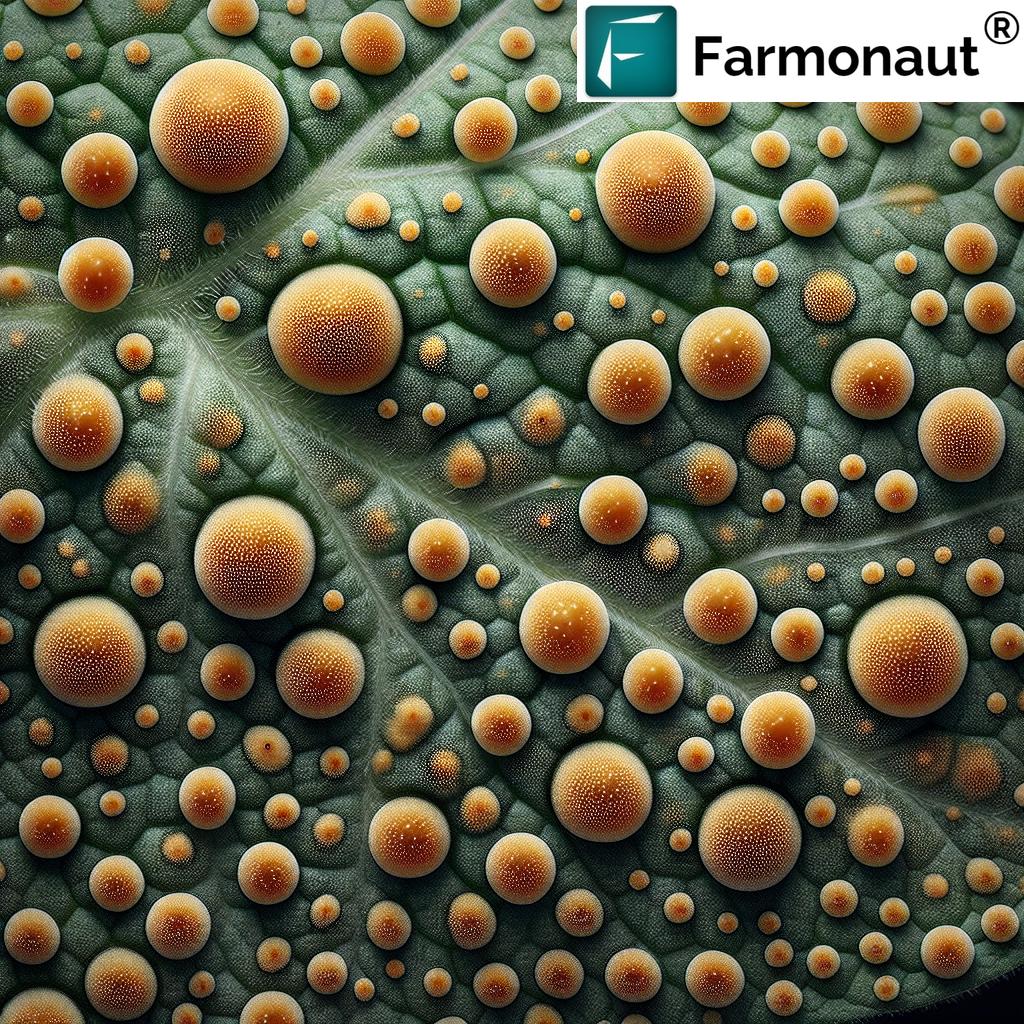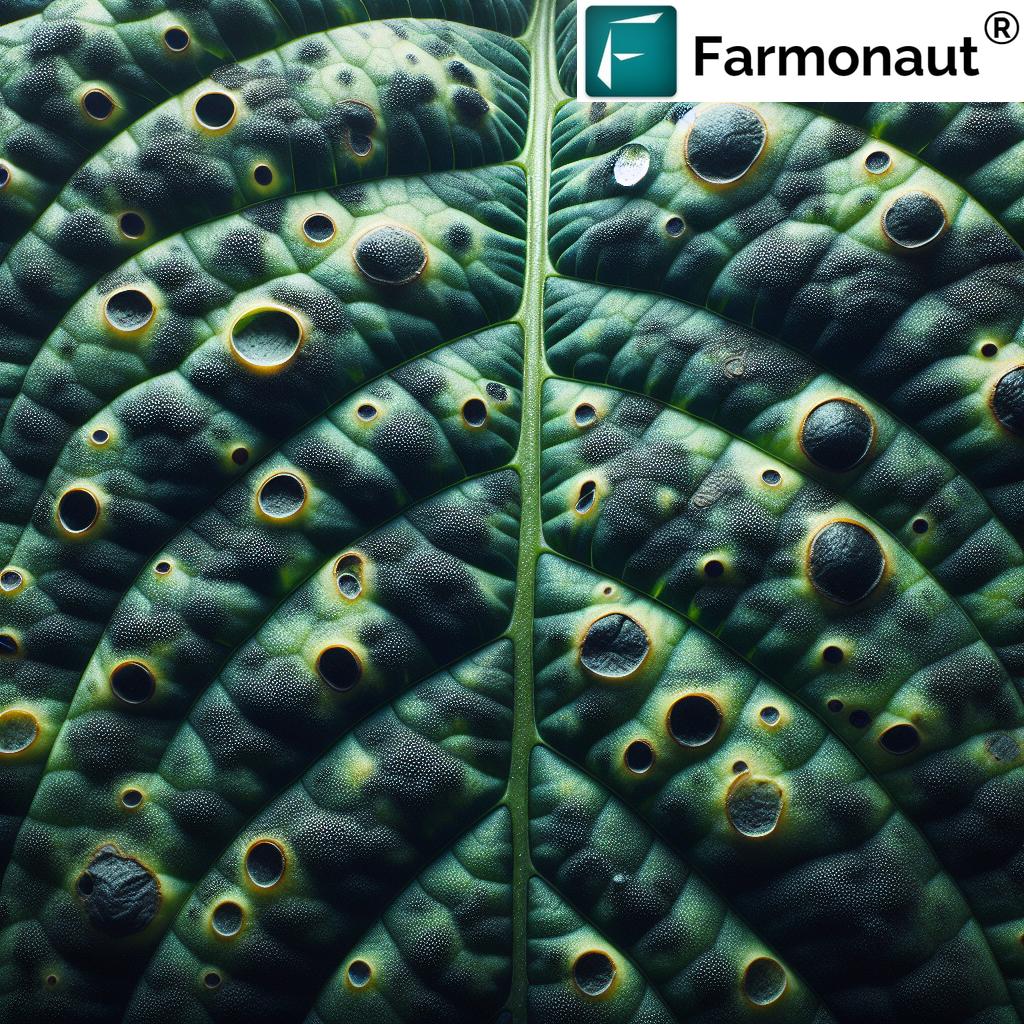AI for Olive Grove Management: 7 Game-Changers Revealed!
Meta Description: Discover how AI and precision irrigation optimize olive grove management, boosting yield, ensuring sustainability, and advancing disease detection.
Introduction: Why AI is the Future of Olive Grove Management
At Farmonaut, we witness firsthand how artificial intelligence (AI) and precision agriculture technologies are transforming olive grove management. The landscape of olive cultivation is evolving across regions like Greece, Spain’s Andalusia, and beyond, propelled by data-driven solutions that address water scarcity, boost productivity, detect diseases early, and enhance sustainability.
The integration of sensors, IoT devices, satellite imagery, and machine learning algorithms enables farmers to optimize everything from irrigation schedules to harvest timing. In this post, we reveal the 7 game-changing advancements making “AI for olive grove management” not just a trend, but a crucial pillar for the future of the olive oil industry. Let’s dive in!
1. Precision Agriculture & Irrigation Management: The Bedrock of Smart Olive Farming
Precision Irrigation Systems & “Water Efficiency in Olive Farming”
In many regions, especially the Mediterranean (notably Greece and Andalusia), olive cultivation faces increasing water scarcity. Efficient water management and advanced irrigation systems are absolutely vital. Here’s where AI, IoT in agriculture, and real-time monitoring come into play.
- Smart irrigation platforms that utilize IoT devices are deployed in groves to monitor soil moisture at various depths—not just on the surface, but deep into the root zones.
- These sensors transmit real-time data to cloud-based platforms, allowing farmers to adjust water delivery based on precise crop needs.
- The implementation of this tech in Greek olive groves led to water usage reductions of 42% in 2020 and 25% in 2021 (source).
Efforts in Andalusia have advanced this further: AI tools here analyze climatic and soil data, and, using neural networks, predict irrigation needs up to a week in advance. The result? Reduced production costs, water, and energy use, while maintaining (or even boosting) olive yield and oil quality.
By integrating these precision irrigation systems with AI advisory platforms such as Farmonaut’s own Jeevn AI, farmers can automate irrigation schedules and make informed decisions that drive both efficiency and sustainability.
- Benefits: Less water wasted, lower costs, healthier trees, and better yields—while tackling resource scarcity.
- Key SEO keyword applications: precision irrigation systems, water efficiency in olive farming, olive grove management, soil moisture monitoring, optimize irrigation schedules, IoT in agriculture.
Satellite Imagery & AI Data Analysis
Platforms like Farmonaut harness multispectral satellite imagery for expansive, affordable, and high-frequency crop health monitoring. This allows immediate visibility of grove conditions, enabling rapid responses to water stress, disease risk, or nutrient deficiency.
- Analyze NDVI and soil moisture—remotely and at scale, minimizing the need for manual field checks.
- Automate alerts for areas outside optimal parameters, further enhancing efficiency.
Offering large-scale farm management tools through user-friendly web, Android, and iOS apps makes it easier than ever for farmers, cooperatives, and agribusinesses to monitor, optimize, and scale their olive operations regardless of location.
2. Disease Detection and Pest Management with AI
Early Detection of Diseases in Olive Trees: Beating Outbreaks Before They Spread
One of the most feared threats in olive groves is Xylella fastidiosa, a lethal bacterium known for causing Olive Quick Decline Syndrome. Early disease detection is critical to preventing the spread of such pathogens.
- AI-powered drones equipped with multispectral cameras capture high-resolution images of large areas and individual trees, detecting even subtle symptoms invisible to the naked eye.
- These images are then run through deep learning algorithms, which can assess plant health, identify stress regions, and flag diseases more quickly and precisely than traditional “walk-through” scouting.
- Targeted interventions (e.g., selective pruning, focused biocontrol) are enabled, reducing pesticide usage by up to 18% as reported in recent implementations (source).
When linked with traceability solutions, disease detection in olive trees not only helps growers but strengthens supply chain integrity—assuring buyers and consumers of rigorous safety and quality standards.
Pest Detection, Security, and Video Surveillance
- AI-powered video surveillance systems can continuously monitor olive plantations for both pest/predator and human threats (like theft or vandalism).
- These systems detect abnormal activities in real-time, sending instant alerts to managers and workers, vastly improving plantation security and operational efficiency.
- Pest monitoring using real-time data leads to smarter, more precise interventions, minimizing unnecessary chemical inputs and supporting sustainability.
3. AI-Driven Harvest Optimization in Olive Groves
Olive Yield Optimization & Harvest Scheduling
For superior olive oil, the timing of harvest is everything. “When should we harvest?” is a question that impacts oil flavor, yield, and productivity. Old-school methods rely mainly on experience and weather intuition. Today:
- AI platforms can analyze years of satellite data, climate patterns, and real-time plant health data to forecast the ideal olive harvest window—weeks in advance.
- BeHTool (as utilized in Andalusia), for example, integrates sensor networks and weather stations to constantly monitor key parameters affecting olive ripening.
- This method improves olive yield by up to 30%, and harvesting efficiency by 40%, giving both small growers and large estates a measurable edge (source).
Satellite-Based Yield Prediction & Quality
Farmonaut’s AI-based advisory systems take historic crop and climate data and combine it with real-time field metrics for accurate olive yield predictions, empowering growers to efficiently plan their logistics, labor, and marketing.
- Greater accuracy = better product quality control, fewer surprises, and reduced losses.
- Consistent olive oil quality is made possible by aligning harvesting times with peak fruit quality periods.
4. Supply Chain & Quality Control: Traceability Revolution
Olive Oil Traceability and Product Authenticity with AI
The olive oil industry confronts challenges in counteracting fraud, ensuring product authenticity, and maintaining quality across diverse markets and end consumers. Enter AI-enhanced traceability platforms:
- Using blockchain-based records combined with field and lab data, the journey of each batch of olive oil is tracked from grove to bottle.
- AI algorithms analyze images of olive pits to verify the variety and quality of olives used, further reassuring consumers.
- Databases and intelligent analytics enable instant checks for authenticity and permit buyers to trace product origins at the point of sale (source).
Farmonaut’s traceability product delivers blockchain-backed transparency for olive growers, oil producers, and food brands—building certainty, improving compliance, and creating trust with customers worldwide.
- Reduce fraud and disputes in the supply chain.
- Enhance international market access—where traceability is often a prerequisite for premium pricing and trade.
Quantifiable Gains from AI in Supply Chain
- Yield estimates improved by 30% with AI.
- Harvesting efficiency increased by 40%.
- Irrigation schedules optimized with up to 25% less water usage.
- Pesticide input can be reduced by 18% with AI-enabled pest monitoring (source).
5. Sustainability & Efficient Resource Management in Olive Groves
Sustainable Olive Farming Practices Powered by AI
In today’s world, sustainability is not an optional extra: it’s central to the long-term viability of olive cultivation. AI platforms help farmers to adopt eco-friendly practices, including:
- Recommending reduced water usage and optimal irrigation timings.
- Promoting organic input management and the judicious use of fertilizers/pesticides.
- Supporting carbon footprint tracking—a unique tool offered by Farmonaut’s carbon footprinting service—which empowers agribusinesses to measure, monitor, and minimize the climate impact of their operations.
These steps not only protect natural resources but also futureproof operations against more extreme weather and regulatory risks.
AI-Based Crop Monitoring for Enhanced Productivity
- Adopting AI-guided monitoring platforms has shown to increase olive tree productivity by 22% (source).
- By providing in-depth visibility into the grove, these platforms drastically improve resource allocation and reduce input waste.
For both large and small growers, efficient resource management is achievable through integration with fleet and resource management solutions. This enables precise deployment of machinery, vehicles, and labor—cutting operational costs and maximizing overall grove efficiency.
How AI Enhances Compliance, Certification & Financing
- Farmonaut makes it easier for growers to secure financing and insurance using satellite-based crop verification for crop loans and insurance products.
- Automated reporting means faster, more accurate data for government compliance and certifications related to sustainable and organic farming practices.
- The ability to prove sustainability credentials is quickly becoming an edge in international olive oil markets.
6. Innovative Platforms & Tools Empowering Farmers
No innovation matters unless it can be applied at the field level. Through smart platforms and tools, AI is not just for large agribusinesses—it is democratized for family farms and cooperatives around the world.
- Farmonaut’s multispectral crop health monitoring puts affordable “eye in the sky” satellite tech in the hands of all farmers. There is no need for expensive drones or special on-ground hardware.
- The Jeevn AI Advisory System delivers personalized insights, weather forecasts, and expert crop management tips—directly to a mobile phone or web dashboard.
- Blockchain-based product traceability enables true “farm to table” transparency, crucial for high-value olive oil markets.
- Farmonaut’s Satellite and Weather API and Developer Docs allow agritech businesses and governments to build their own analytic apps, dashboards, and reports, dramatically expanding the reach of these technologies.
These tools integrate seamlessly with existing agricultural practices, bridging the gap between traditional wisdom and next-generation precision agriculture in the olive industry.
Comparative Impact Table: AI vs Traditional Olive Grove Management
To help visualize the groundbreaking differences, here’s a comparative table showing the tangible impact of each AI-driven method on olive grove management versus traditional agricultural approaches.
| AI Technology/Method | Traditional Approach | Estimated Yield Improvement (%) | Resource Savings (Water/Fertilizers) (%) | Disease Detection Speed (Days) | Sustainability Impact |
|---|---|---|---|---|---|
| 1. Precision Irrigation (IoT & AI) | Manual/Timed Irrigation | +18-30% | Up to -42% water | Days to detect stress | Significant water conservation; less soil erosion |
| 2. Drone Technology in Disease Detection | Visual scouting, manual inspection | +15% | -18% pesticide | 1–2 (AI) vs 7+ (manual) | Reduces chemical load |
| 3. AI-driven Yield Prediction/Harvest Management | Expert guesswork, calendar-based | +30% | – | Immediate via dashboard | Reduces waste; optimizes harvesting |
| 4. Blockchain Traceability & AI Imaging | Paper records, spot checks | – | – | – | Enables organic/premium markets |
| 5. AI Fleet/Resource Management | Manual logbooks, basic GPS | +8% | 10–12% less fuel/inputs | – | Reduces carbon emissions |
| 6. AI Crop Health Monitoring (Satellites) | Field tours, sampling | +22% | – | Annual/monthly vs daily | Less waste, timely action |
| 7. AI Sustainability/Carbon Footprint Tracking | Manual estimation, rarely done | – | – | – | Objective climate impact reduction |
FAQs on AI in Olive Grove Management
What is precision irrigation, and how does it help in olive cultivation?
Precision irrigation uses data from sensors, satellites, or IoT to deliver water exactly where and when it’s needed in an olive grove. This approach drastically enhances water efficiency in olive farming, reduces waste, increases yields, and responds rapidly to periods of drought or scarcity.
How does AI improve disease detection in olive trees?
AI leverages deep learning algorithms to analyze images from drones or satellites, spotting subtle signs of stress or infection (e.g., Xylella fastidiosa) long before symptoms are visible to humans. This early disease detection means faster interventions and less overall damage.
Can small-scale olive farmers access these technologies?
Absolutely! Farmonaut and similar platforms are committed to making AI in olive cultivation affordable and accessible. With mobile/web apps and subscription packages, even smallholders can benefit from AI-driven monitoring, resource optimization, and traceability.
How does AI-based traceability work for olive oil?
By using blockchain and smart databases, every step of the olive oil journey—from grove to bottle—is recorded and verifiable. This ensures authenticity, combats fraud, and helps consumers identify high-quality, sustainably produced oils instantly.
Is it possible to reduce chemical inputs with AI?
Yes. Pest and disease detection systems allow for targeted treatments and interventions, cutting unnecessary and blanket chemical applications. This moves the olive industry toward more sustainable olive farming practices.
Conclusion: Embracing the Olive Grove Revolution with AI
As global pressures on agriculture mount—in the form of climate change, environmental regulation, and consumer demand for transparency—the olive industry must evolve. By adopting AI, IoT, satellite technologies, and blockchain, growers are optimizing yields, minimizing resource usage, ensuring product quality, and proving sustainability to both buyers and regulators.
Platforms like Farmonaut embody this shift, offering affordable, scalable, and powerful solutions that bridge the gap between traditional olive cultivation and the digital future. The result? More efficient, resilient, and sustainable olive groves—from Andalusia to Greece and wherever olives flourish.
Ready to join the olive revolution? Explore the tools, technologies, and resources that can help your groves thrive for decades to come.
Farmonaut Subscription Options
Get started with Farmonaut’s intelligent crop monitoring, precision advisory, and sustainability solutions tailored for olive groves. Choose your ideal subscription, whether you’re a smallholder, cooperative, or large agribusiness—scalable, multi-platform, and affordable.
For more information on integrating satellite or weather APIs into your own agri-tech products, see the Farmonaut API Developer Documentation.
Olive grove management is entering its golden age—driven by artificial intelligence, data, and precision agriculture. By embracing these 7 game-changers, we are not just optimizing groves for today, but safeguarding the legacy and prosperity of olive farming for generations.


